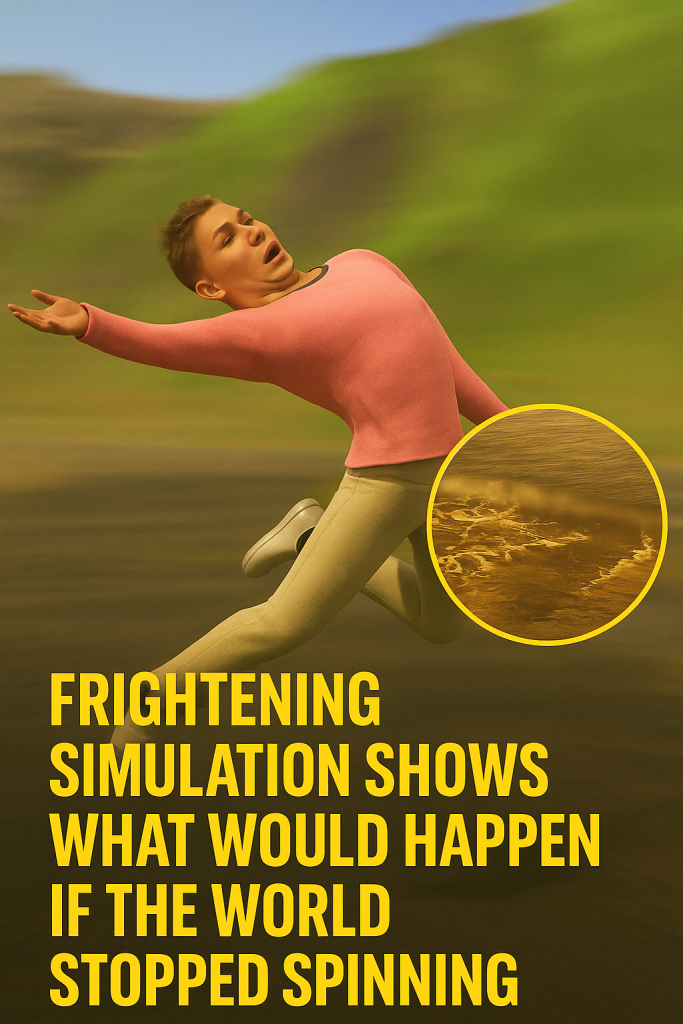Imagine waking up one day to a world that no longer rotates — a scenario so unsettling it’s hard to fathom. Yet, recent scientific simulations have visualized precisely what would happen if our planet abruptly stopped spinning, exposing a cascade of catastrophic consequences that would dramatically reshape life on Earth.
These new simulations, developed using advanced computational models that integrate atmospheric, geological, and oceanic data, offer the most detailed glimpse yet into this terrifying hypothetical event. While the likelihood remains vanishingly small, the results provide crucial insights into the delicate balance that Earth’s rotation maintains.
Why does Earth’s spin matter? The Earth completes one full rotation every 24 hours, causing day and night cycles and driving powerful phenomena such as the Coriolis effect, which shapes weather patterns and ocean currents. Stopping this spin wouldn’t just alter day lengths; it would disrupt the planet’s entire system.
Here’s what the simulation reveals:
- Immediate atmospheric chaos: Without the centrifugal force generated by rotation, the atmosphere would behave radically differently. Winds thousands of miles per hour would blast from the equator toward the poles as air masses try to rebalance, creating extreme storms and destructive weather systems worldwide.
- Global flooding and shifting oceans: Earth’s rotation causes a bulging of water around the equator. If this spin stops, waters would migrate towards the poles, flooding vast areas of high latitude land while transforming former equatorial regions into arid deserts.
- Extreme temperature swings: With the planet no longer rotating, one side would face continuous daylight while the other plunged into perpetual darkness. This would produce scorching heat on the sunlit side and freezing cold on the dark side, making large swaths uninhabitable.
- Loss of magnetic field: The simulation emphasizes that the Earth’s molten core rotation contributes to generating its magnetic field. If the planet stopped rotating, the magnetic shield protecting life from solar and cosmic radiation could weaken, threatening ecosystems and human technology.
- Geological upheaval: Some models predict that the sudden cessation of spin could trigger massive earthquakes and volcanic activity as the Earth’s crust adjusts to new stresses.
While the notion of Earth halting its rotation sounds like science fiction, understanding these effects underscores how finely tuned our planet’s dynamics are for sustaining life. Scientists emphasize that no natural process is known that could abruptly stop Earth’s spin, and any slowdown would happen over billions of years.
Still, this simulation serves as a stark reminder: our environment depends on powerful, unseen forces that keep stability in place. As we face countless challenges — from climate change to technological disruptions — appreciating these invisible protections can deepen our motivation to safeguard the planet.
In short: If Earth ever did stop spinning, the world as we know it would be transformed overnight. From colossal storms and flooded continents to unrelenting sunlight and deadly darkness, life would face unprecedented threats. This simulation however is a critical tool that helps scientists further understand Earth’s complex systems and the vital role rotation plays.
For now, there’s no need to panic — but the eye-opening visuals from this study definitely add “world stops spinning” to the growing list of things that make us pause and appreciate our constantly turning home.



